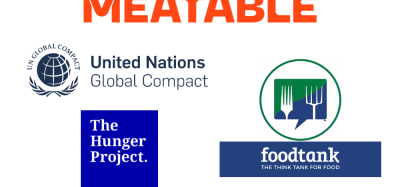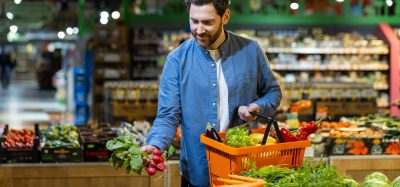Cocoa sector close to reaching tipping point in sustainability
- Like
- Digg
- Del
- Tumblr
- VKontakte
- Buffer
- Love This
- Odnoklassniki
- Meneame
- Blogger
- Amazon
- Yahoo Mail
- Gmail
- AOL
- Newsvine
- HackerNews
- Evernote
- MySpace
- Mail.ru
- Viadeo
- Line
- Comments
- Yummly
- SMS
- Viber
- Telegram
- Subscribe
- Skype
- Facebook Messenger
- Kakao
- LiveJournal
- Yammer
- Edgar
- Fintel
- Mix
- Instapaper
- Copy Link
Posted: 3 July 2012 | Han de Groot, Executive Director, UTZ CERTIFIED | No comments yet
More and more people are getting familiar with the word sustainability. It is after all everyone’s future that is at stake. Although the concept sustainability is winning terrain, it is still not a ‘reason to buy’ for consumers. Only five per cent are willing to pay more for a product that is responsibly sourced. The other 95 per cent base their choice for products on price, quality and brand familiarity. To make a substantial contribution to sustainability, a more practical approach is needed. UTZ CERTIFIED (one of the largest sustainability programs for coffee, cocoa and tea) has adopted such a practical approach by working together with existing brands. The manufacturers of these brands need raw materials on a large scale – raw materials that are produced by farmers in developing countries. By increasing the sustainability of these raw materials, we are able to raise the standard of living of a large number of farming communities.
The question then is how to convince these large manufacturers of the importance of sourcing sustainable if consumers are not willing to pay extra; by showing them the economic viability of trading responsibly and showing that sustainably sourced, certified raw materials don’t necessarily lead to more expensive products. The UTZ CERTIFIED sustainability program works from a bottom up approach using the UTZ-Code of Conduct to analyse the major problem areas for farmers on issues that have the most impact on income and sustainability, as well as a top down approach meeting market requirements.
More and more people are getting familiar with the word sustainability. It is after all everyone’s future that is at stake. Although the concept sustainability is winning terrain, it is still not a ‘reason to buy’ for consumers. Only five per cent are willing to pay more for a product that is responsibly sourced. The other 95 per cent base their choice for products on price, quality and brand familiarity. To make a substantial contribution to sustainability, a more practical approach is needed. UTZ CERTIFIED (one of the largest sustainability programs for coffee, cocoa and tea) has adopted such a practical approach by working together with existing brands. The manufacturers of these brands need raw materials on a large scale – raw materials that are produced by farmers in developing countries. By increasing the sustainability of these raw materials, we are able to raise the standard of living of a large number of farming communities. The question then is how to convince these large manufacturers of the importance of sourcing sustainable if consumers are not willing to pay extra; by showing them the economic viability of trading responsibly and showing that sustainably sourced, certified raw materials don’t necessarily lead to more expensive products. The UTZ CERTIFIED sustainability program works from a bottom up approach using the UTZ-Code of Conduct to analyse the major problem areas for farmers on issues that have the most impact on income and sustainability, as well as a top down approach meeting market requirements.
More and more people are getting familiar with the word sustainability. It is after all everyone’s future that is at stake. Although the concept sustainability is winning terrain, it is still not a ‘reason to buy’ for consumers. Only five per cent are willing to pay more for a product that is responsibly sourced. The other 95 per cent base their choice for products on price, quality and brand familiarity. To make a substantial contribution to sustainability, a more practical approach is needed. UTZ CERTIFIED (one of the largest sustainability programs for coffee, cocoa and tea) has adopted such a practical approach by working together with existing brands. The manufacturers of these brands need raw materials on a large scale – raw materials that are produced by farmers in developing countries. By increasing the sustainability of these raw materials, we are able to raise the standard of living of a large number of farming communities.
The question then is how to convince these large manufacturers of the importance of sourcing sustainable if consumers are not willing to pay extra; by showing them the economic viability of trading responsibly and showing that sustainably sourced, certified raw materials don’t necessarily lead to more expensive products. The UTZ CERTIFIED sustainability program works from a bottom up approach using the UTZ-Code of Conduct to analyse the major problem areas for farmers on issues that have the most impact on income and sustainability, as well as a top down approach meeting market requirements. In the cocoa sector for example, we see large issues concerning scarcity and quality. There is an increasing demand for cocoa; the consumption in northern economies and in upcoming markets like Brazil, China and India is growing rapidly. Another imminent problem is the decreasing quality of cocoa. If we continue at the current pace, in the current way of producing and trading, manufacturers will not be able to source the needed cocoa volume or quality in the near future. This is one of the reasons why sustaina – bility is emerging from the niche position where it has been the past years. This is being made visible through increasing demand for sustainably sourced cocoa and also through the increased willingness to invest in and commit to sustainability by the mainstream market’s biggest players. It is no longer merely an issue of poverty reduction; it is about achieving more efficient production and increased costefficiencies, securing supply for the future.
The cocoa sector is experiencing a meaningful and intensive transformation, an industry driven change. A good example where this change has seen a successful start is the Netherlands, an important player in the cocoa industry as Amsterdam is the largest cocoa harbour worldwide with a turnover of EUR 2.5 billion a year. The leading players in the Dutch cocoa sector jointly signed a declaration of intent with the Ministry of Agriculture, Nature and Food Quality in which they state to strive for fully sustainable cocoa consumption in the Dutch market by 2025. Ten years before that (2015) already 50 per cent of the Dutch cocoa market should be sustainably sourced. One might think this is still a long time before we reach a fully sustainable cocoa market. However, at this moment there is simply not enough supply to meet the demand for sustainably produced cocoa. To scale up sustainable supply responsibly, we need to take the necessary time to train all farmers and implement the sustainability criteria as they are determined for producing cocoa responsibly and the biggest market players in the cocoa sector to join forces with the aim to battle the challenges which the cocoa sector is currently facing. As said, these issues are reason for the industry to commit to sustainability on a structural level and create shared value for business and society.
A similar development is currently happening in Germany, a country with five times as many inhabitants as the Netherlands and twice the consumption volume per citizen. The industry in Germany is also looking at a declaration of intent, signed by the sector to collectively strive for a fully sustained cocoa market.
Besides ensuring supply for market players, UTZ CERTIFIED is convinced that increasing sustainability should also reinforce the independent position of farmers. This is why farmers are trained in the professionalisation of their agricultural practice and operational management with care for people and enviro – nment. This improves the quality of the cocoa and allows them to produce higher volumes at lower costs and, in turn, improves their standard of living as it enables the farmers to negotiate a better price for a better product. Moreover, farmers who work with UTZ CERTIFIED in the global marketplace receive a negotiated premium on top of the market price for their crop and they do not have to pay an annual fee for taking part in the program. By working with a code of conduct, strict requirements are set for farmers when it comes to the sustainable growing of cocoa. Farmers improve business skills, labour conditions and focus on protection of the environment. Their operational manage – ment, labour conditions and environmental protection is checked by independent third parties to make sure producers meet the control points covering social, economic and environ – mental criteria as set in the Code of Conduct. The UTZ CERTIFIED tracking system subsequently guarantees that the raw materials have actually been grown and harvested in a responsible manner. Sustainability, approached from a mainstream perspective, is beneficial for the entire supply chain. Not only in the Netherlands, are companies are starting to invest in sustainability significantly, also in other parts of the world sustainability is growing fast.
Mars for example is investing in the cocoa sector extensively. According to an internal estimation by the chocolate manufacturer, the worldwide demand for cocoa will increase at two per cent per annum up to the year 2020 and the demand in Asia will grow at a very rapid pace. This means that the volume would increase by a million tonnes by the end of the decade – which almost corresponds to the entire production of the largest producing country which is the Ivory Coast, reason enough for Mars to undertake action. In Germany, Mars recently launched the sustainably sourced Balisto bar with UTZ CERTIFIED cocoa, one of the most popular chocolate bars in Germany.
Scaling up, it plans to source all their cocoa volume needed worldwide sustainably by 2020. In its journey towards being fully sustainable, Mars has developed several awareness projects, activities in origin and consumer campaigns. One of these projects was initiated by Mars Netherlands. To raise awareness amongst consumers, the project For The Love Of Chocolate was set up. Together with Solidaridad and UTZ CERTIFIED, Mars arranged for a writer, a photographer and a video maker to visit Ghana and see for themselves what the impact of sustainable sourcing and farming actually has on cocoa farmers and their communities. A combination of video footage, images and stories provided a very clear and honest story about the situation in Ghana. All materials were published on a consumer focused website.
Lidl has been one of the first in the lower pricing segment to invest in sustainability on a European level. This shows that retailers see the need for sustainable sourcing. It is no longer just a trend but a necessity, also in the discount segments of the markets. By acting now, these companies are investing in their ability to meet the demands of future consumers. It also shows that sustainability does not have to be more expensive than conventional products. By increasing productivity, they work to safeguard the future supply, without having to increase their sourcing budget extensively. This is how sustainability can create economic benefits for both farmers and markets; taking sustainability to a mainstream level. In addition, Lidl Germany has offered to finance the construction of an agricultural school in the Ivory Coast and support training of cocoa farmers in sustainable farming methods. This project will be implemented together with the German Society for International Cooperation (GIC). Through training on the strengthening of the certification, as well as methods for sustainable cocoa farming, product quality will be improved and cooperatives strengthened.
While working with big companies, one might be critical towards the question whether this is credible. UTZ CERTIFIED develops sustainable supply chains for agricultural products that are credible from farm to manufacturer. To create such a credible chain, three important pillars need to be in place.
Production standard: In order to determine whether producers are farming sustainably, a clear standard, developed in a multi-stakeholder process, needs to be in place. The certification of these producers will take place against this standard. The UTZ CERTIFIED standards for certification can be found in the Code of Conduct requirements.
Assurance model: To administer the sustainability claim of the end product, all administration is controlled through the traceability system. Traceability assures consumers and supply chain actors that their product truly relates to certified sustainable sources.
Supply chain actor compliance: To assure compliance with Chain of Custody rules and traceability procedures, auditing of the supply chain actors against these rules and procedures is required. The audits assure credibility and transparency throughout the chain.
Even when all pillars are in place, we still need to be aware about the challenges the cocoa sector faces like poor soil fertility management, aging tree stocks, improper use of chemicals, uncontrolled forest conversion, low farmer income and poor labour practices.
The number of certified producers is steadily increasing and many more projects are underway. The cocoa supply from West Africa, Latin America and Asia is growing faster than original projections.
UTZ CERTIFIED has a professional and dedicated network of representatives and con – sultants who facilitate sustainable business practices in origin countries and works together with worldwide developmental capacity builders, such as Solidaridad, who support farmers with implementing the UTZ CERTIFIED Code of Conduct.
As the UTZ Program expands, the reach of this network will be developed and innovative ways to reach even larger groups of farmers are looked into. To achieve this goal various activities are undertaken such as training the trainers, developing training materials, monitoring implementation and assessing impact.
About the author
Han de Groot is Executive Director of UTZ CERTIFIED, a leading standard for sustainability in agricultural commodities. UTZ CERTIFIED is mainly focusing on coffee, cocoa and tea and also provides traceability services for palm oil and cotton. Han joined UTZ CERTIFIED in 2010 and before that worked in the Dutch ministry for Agriculture, Nature and Food, as a Deputy Director for Nature. Earlier, Han held positions in other ministries and worked for the Dutch NGO Oxfam Novib.









